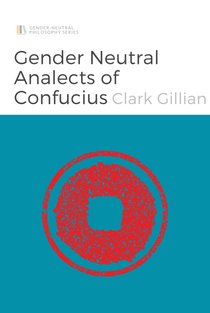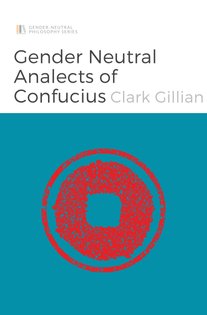The analects of Confucius
Lúnyǔ / 論語
🧧
子曰
學而時習之,
不亦說乎?
有朋自遠方來,
不亦樂乎?
人不知而不慍,
不亦君子乎?
Said Confucius:
Isn't it fantastic to keep learning and persevere with dedication?
Isn't it great be visited by friends prepared to travel far to see you?
Whose virtue is such that they stay the same even when no one's looking?
🧧
有子曰
其為人也孝弟,
而好犯上者,
鮮矣;
不好犯上,
而好作亂者,
未之有也。
君子務本,
本立而道生。
孝弟也者,
其為仁之本與!
Now there was a philosopher who said:
There are very few who match well with their parents and siblings, but at the same time do not match with their bosses or teachers.
And among the people who don't feel the need to fight to get the last word, there isn't a single one who likes to start a fight.
Being strict about where your attention goes, that is what the virtuous pay attention to.
And from there all practical things grow by themselves.
Parental and fraternal duty,
is that not the basis of all virtue?”
🧧
子曰
巧言令色,
鮮矣仁!
Said Confucius:
Impressing with difficult terms,
Or making your appearance appetizing,
Both are things that do not directly suggest virtue.
🧧
曾子曰
吾日三省吾身
為人謀而不忠乎?
與朋友交而不信乎?
傳不習乎?
And there was another philosopher who said:
I don't let a day go by before I ask myself these three questions:
Have I been faithful in doing business with my customers?
Have I been sincere in dealing with my friends?
Have I really mastered everything I've learned?
🧧
子曰
道千乘之國
敬事而信,
節用而愛人,
使民以時。
Said Confucius:
The way for a land of a thousand chariots:
Be as sincere in matters as in words.
Have a use for all expenses with respect for the people.
Consult the people in time.
🧧
子曰
弟子入則孝,
出則弟,
謹而信,
汎愛眾,
而親仁。
行有餘力,
則以學文。
What Confucius had said:
When you are still young and living at home, show respect to your parents.
Once you live on your own, be respectful of all elders.
Always think before you speak, stand behind your words.
Appreciate everything and everyone and make humanity your best friend.
If you have any energy left after this, put it into studying.
🧧
子夏曰
賢賢易色,
事父母能竭其力,
事君能致其身,
與朋友交言而有信。
雖曰未學,
吾必謂之學矣。
Another one said:
One who can free their mind from an obsession with appearances and put the same effort into being virtuous;
And if they can show their strength in taking care of their parents;
If they can devote their lives to their duties;
If they always speak sincerely in their dealings with their friends;
Then I don't care at all whether they have studied or not.
I will claim in all languages that they are learned.
🧧
子曰
君子不重則不威,
學則不固。
主忠信,
無友不如己者,
過則勿憚改。
Said Confucius:
If the student is not serious,
People will not immediately admire them for what they have learned;
And everything they've learned won't stick either.
Take trust and sincerity as your foundation.
Better to have no friends than friends who don't understand you on the same level.
To know your flaws is one thing.
But don't fear the next step to leave them behind too.
🧧
曾子曰
慎終追遠,
民德歸厚矣。
There was also another philosopher who said:
If everyone had to deeply mourn their parents and make the farewell ceremony mean something, the integrity of the community would soon return.
🧧
子禽問於子貢曰
夫子至於是邦也,
必聞其政,
求之與?
抑與之與?
子貢曰
夫子溫、
良、
恭、
儉、
讓以得之。
夫子之求之也,
其諸異乎人之求之與?
Then it so happened that one philosopher asked another:
When our great teacher goes to visit another country, he absorbs everything there is to learn about how they organize their country.
Does he ask for this information himself, or is it given to him spontaneously?
The other philosopher said:
Our great teacher is a good-hearted fellow, polite, always restrained and accommodating.
Therefore people offer their information freely to him!
Fantastic, isn't it, how he manages that?
🧧
子曰
父在,
觀其志;
父沒,
觀其行;
三年無改於父之道,
可謂孝矣。
Said Confucius:
When the parents are still alive, a person has certain habits and goals.
When the parents have died, the behavior of their offspring is telling.
If their way of life hasn't gone through major changes until three years after the death of their parents, only then can one conclude that they really lived according to the values of their parents.
🧧
有子曰
禮之用,
和為貴。
先王之道斯為美,
小大由之。
有所不行,
知和而和,
不以禮節之,
亦不可行也。
There was once a philosopher who said:
Someone who is decent and polite with a spontaneous disposition should definitely be praised.
By the ancient kings praised as the most magnificent, we should try to follow them in the big and small things.
But of course not in all things.
For example, if someone displays decency and courtesy to gain praise only, it is evident that the intention is different and should not be followed.
🧧
有子曰
信近於義,
言可復也;
恭近於禮,
遠恥辱也;
因不失其親,
亦可宗也。
Yet another philosopher said:
If a fair agreement is reached,
Then the word stands.
When it respect is shown in a decent manner, one avoids shame and disgrace.
If the people one leans on are all people you can trust with the most personal things, then you can see them as your guides too.
🧧
子曰
君子食無求飽,
居無求安,
敏於事而慎於言,
就有道而正焉,
可謂好學也已。
What Confucius Said:
Do not merely try to satiate your appetite in your meals,
Or furnish your home for convenience only;
Be sincere in all you do,
The master in all you say,
Seek the company of people with principles you look up to so that you too can grow to meet that example.
Then you can truly be called learned.
🧧
子貢曰
貧而無諂,
富而無驕,
何如?
子曰
可也。
未若貧而樂,
富而好禮者也。
子貢曰
詩云
如切如磋,
如琢如磨。
其斯之謂與?
子曰
賜也,
始可與言詩已矣!
告諸往而知來者。
Said a philosopher:
How about the following things:
A poor person who never flatters and a rich person without pride?
Confucius replied:
They can pass, but they become as nothing compared to someone who remains cheerful despite poverty or someone who is very rich and yet remains decent.
The philosopher replied:
In the Book of Odes it says:
“Chop and stack as you carve and polish.”
It seems to me that this is the same as what you just said.
Confucius then said:
Only with you can I speak of the odes of antiquity. I said one thing, and you complemented me in with the right verses.
🧧
子曰
不患人之不己知,
患不知人也。
Said Confucius:
It doesn't bother me if people don't know me;
It bothers me when I don't know people.
🧧




